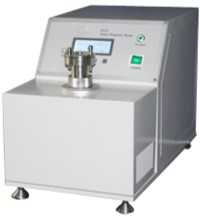Introduction of Wool Fiber Fineness Analysis Tester
Wool Fiber Fineness Analysis Tester are specialized instruments designed to measure the diameter or cross-sectional area of wool fibers, providing crucial data for assessing fiber quality and suitability for various textile applications. Below is an overview of these testers, highlighting key aspects of their design, functionality, and applications.
Applicable Standards:
GB/T_11603, ISO1136, BS3183, ASTM D1282, GB/T_11603
Design and Functionality
Wool fineness testers typically feature a compact and sturdy design, suitable for both laboratory and industrial settings. They utilize advanced technology to ensure accurate and reliable measurements. For instance, some models employ an airflow method, where a fixed volume of air is passed through a wool sample, and the resulting flow rate is used to calculate fiber fineness. Other testers utilize optical microscope imaging combined with computer image processing to measure fiber diameters directly.

Measurement Range and Accuracy
These testers offer a wide measurement range, accommodating different types and grades of wool. High-precision sensors and advanced algorithms ensure accurate measurements, typically down to 0.1 micrometers or even finer. This level of accuracy is crucial for identifying subtle differences in fiber fineness, which can significantly impact textile performance and end-use applications.
Ease of Use and Data Management
Modern wool fineness testers are designed for ease of use. User-friendly interfaces and intuitive software streamline the testing process, enabling operators to quickly set up tests, monitor progress, and analyze results. Data management features, such as wireless connectivity and Excel-compatible report generation, facilitate data sharing and archiving, making it easier for manufacturers to track fiber quality over time and make informed decisions.
Applications
Wool fineness testers are widely used in the textile industry, particularly in wool processing and production. They play a vital role in quality control, ensuring that wool fibers meet specified standards for fineness, strength, and other critical properties. These testers are also used in research and development, enabling textile engineers to explore new fiber blends and processing techniques that enhance textile performance and meet evolving market demands.
In conclusion, wool fineness testers are indispensable tools for the textile industry, offering accurate, reliable, and user-friendly solutions for measuring fiber fineness. Their versatility and precision make them essential for quality control, research, and development efforts aimed at improving textile performance and meeting consumer expectations.
Qinsun Instruments Co., LTD, established in 2012, focuses on the research and development, design, and production of textile testing instruments. It provides textile testing instruments and services to academic research units and testing institutions. Qinsun is currently one of the most competitive and R&D-capable manufacturers of textile testing instruments in China, with an R&D team composed of experienced engineers. We are dedicated to serving our customers with all our hearts and striving to promote technological innovation in textile testing instruments.
2025-01-09 10:13
